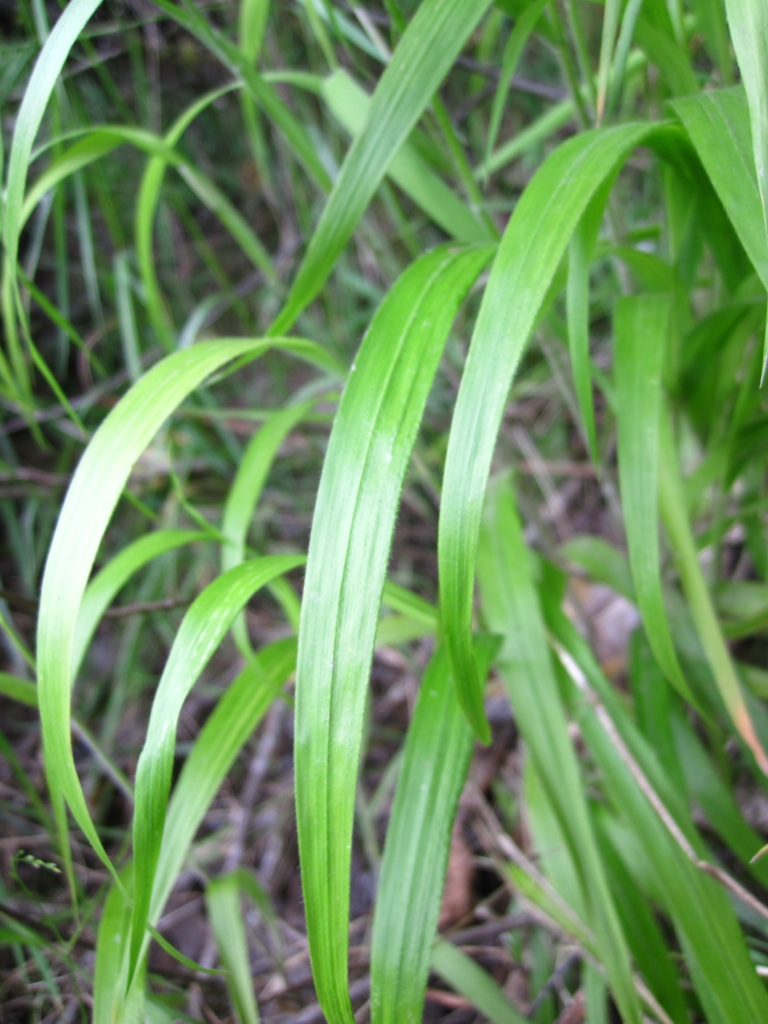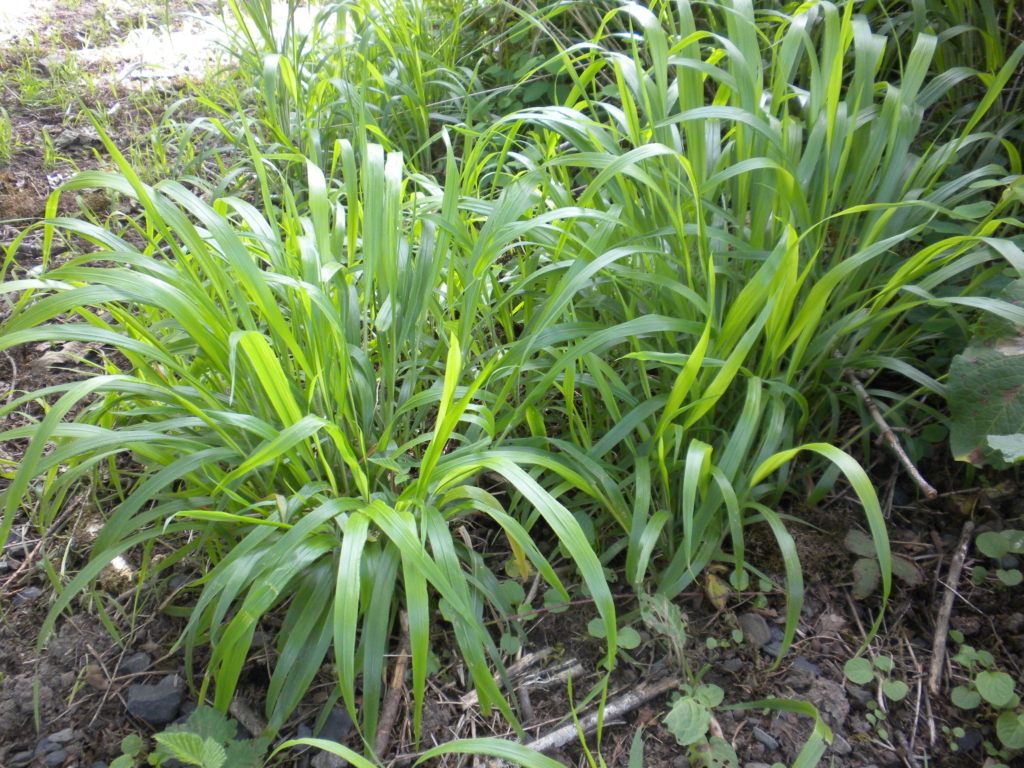False Brome
Brachypodium sylvaticum
Plant Description
Lime-green perennial grass grows in forest understories and edges. Hairs protrude from the edges of leaves, and fruits are attached directly to the flower stem. Stays green into the winter, only dying back after a hard freeze. It starts as clumps but fills in to create dense mats as the infestation spreads.
Plant Details
| Life Forms | |
|---|---|
| Habitats | |
| ODA Listing | |
| Soil and Moisture Conditions | |
| Suggested Actions | |
| Shade Preference | |
| Mature Height | 3' |
| Distribution | Forests, woodlands, and parks of western Oregon and limited extent in central Oregon. |
| Control | Clean seeds from gear/shoes/equipment/pets before leaving an infested site to prevent spread to new sites. Dig up small patches of plants before they go to seed. Use an appropriate herbicide to manage larger infestations. |
| Disposal Methods | Plants without seeds may be composted in a dark compost pile or burned to prevent regrowth. Stems with seeds should be clipped and bagged and disposed of in the municipal waste to prevent spread. |
| Reproduction and Spread | Reproduces by seed. False brome is commonly found along hiking trails and in parks, especially in the eastern part of Marion County where seeds can be picked up in shoes and spread to new locations. Clean shoes and gear between hikes. Stay on trails and don't drive off of roads. |
| Introduced | Pakistan, Europe, temperate regions of Asia, mountainous regions of tropical Asia, Northern Africa and Macronesia, first found in Oregon in 1939. |
| Look Alikes | Columbia brome |
| Impact | It is highly invasive in shaded Woodlands, open prairies, and roadsides and can out-compete native forest understory and grassland vegetation. It can form a monoculture in forest ecosystems. In commercial forests, false brome creates the perfect habitat for rodents that damage tree seedlings. In oak woodlands false brome can suppress the germination of oak seedlings. It appears to have low palatability for wildlife and livestock. This grass may increase fire risks due to the build up of a heavy layer of thatch. |
| More Info |
© Marion Soil and Water Conservation District. All Rights Reserved.


